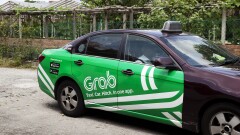Once upon a time, Amazon just sold books. Someday soon, we'll be describing ride-sharing companies the same way.
Rapid-fire acquisitions, partnerships and investments in the likes of Uber, Lyft and Grab are transforming these ride-sharing providers into much more diverse companies. And much of this activity is built on their ability to handle payments seamlessly as part of the experience.
This story was compiled from reporting by PaymentsSource writers including John Adams, Kate Fitzgerald, David Heun, Michael Moeser and Daniel Wolfe.













